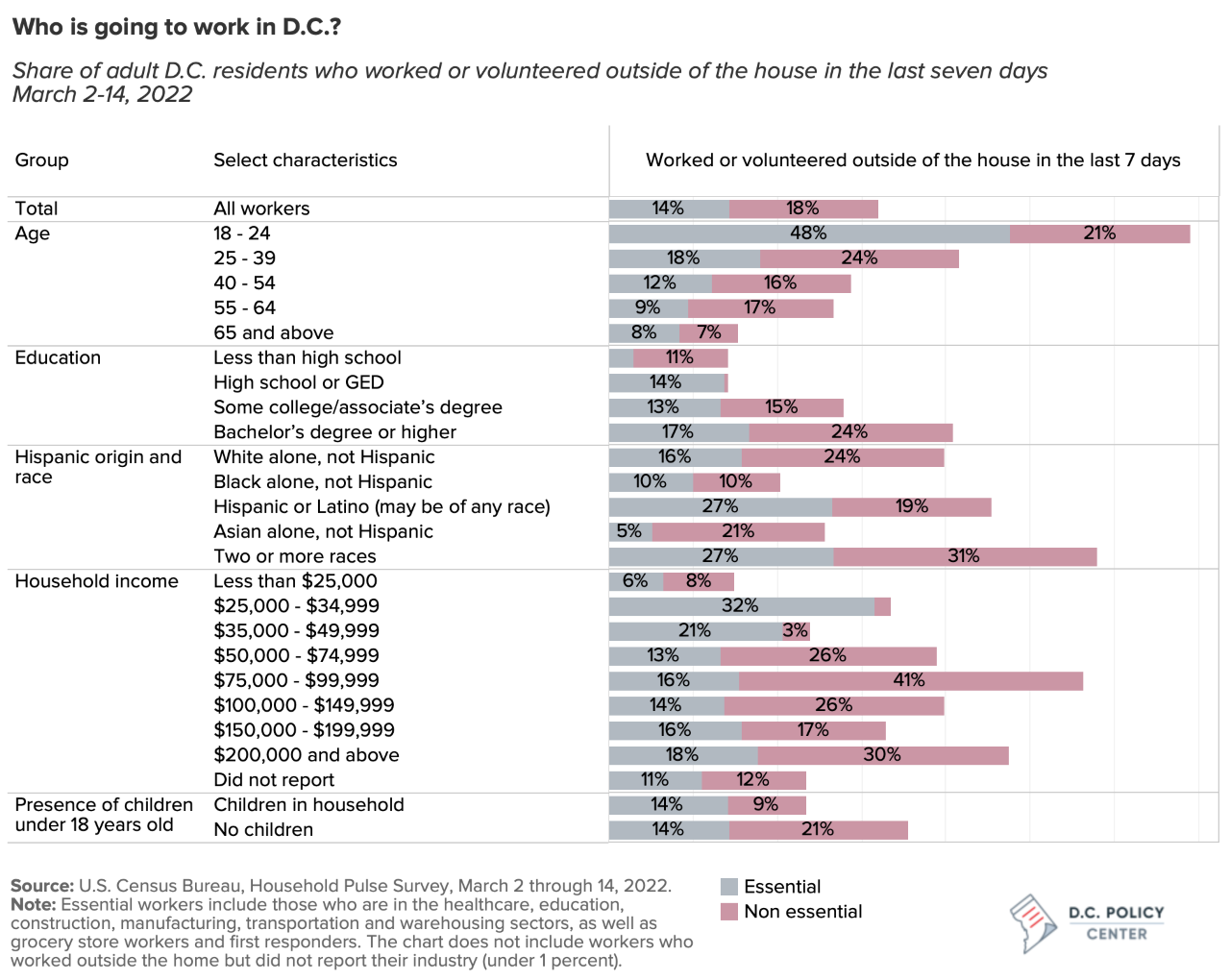According to Household Pulse Survey data from the U.S. Census, during the first two weeks of March 2022, 36 percent of working-age District residents reported working (or volunteering) outside their homes during the previous week.
Young workers between the ages of 18 and 24 were the group most likely to report working outside the home, and among these young workers working outside the home, two out of three workers were essential workers (working in healthcare, education, or transportation; first responders; or those who work in a grocery store).
Non-essential workers were more than twice as likely to leave their home for work if they did not have a child (21 percent, compared to 9 percent among those who had children in the household), and three times more likely to work outside of the house if their household income was above $75,000 (28 percent, averaged across these income groups, compared to 10 percent among those whose household income was below $75,000).
These data also suggest that D.C. residents of Hispanic origin worked away from their homes most frequently compared to other race and ethnicity groups (40 percent reported working away from home), and they more frequently reported an occupation that falls into the category of essential workers (27 percent among Hispanic or Latino residents compared to 14 percent among all).
